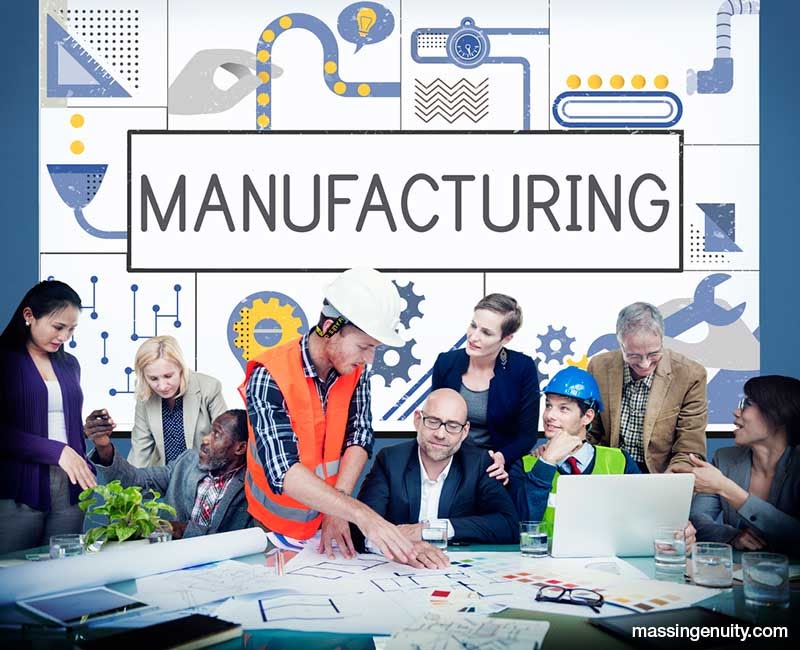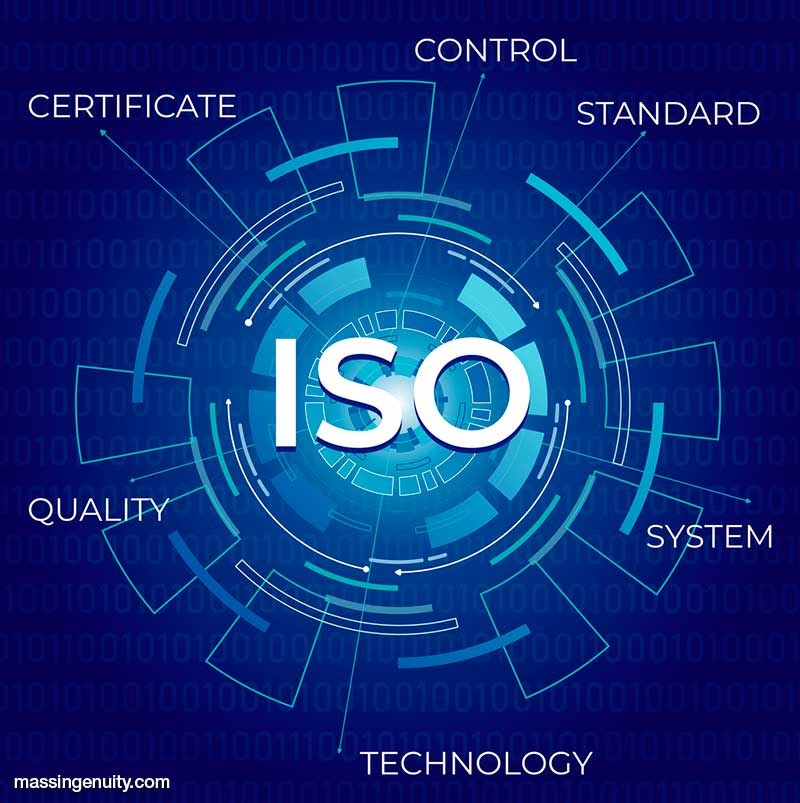The COVID-19 pandemic will hopefully be soon behind us and many manufacturing executives are now understandably heaving a sigh of relief considering the havoc the health crisis wrecked on their operations. The more savvy ones have now begun to initiate new strategic planning initiatives to effectively prepare for the new normal. The economic challenges that characterized the pandemic are now forcing manufacturers to drastically change their business models to retain a competitive edge, fast-track recovery, and prepare for future growth. While the manufacturing industry is still recovering from the economic shock which was triggered by COVID-19, most companies are now learning how to navigate better in an uncertain business environment. Many have begun to embrace newer priorities including safeguarding their existing clientele base. Not to forget the creation of a much safer and healthy workplace for all their staff and formulating contingency plans in anticipation of a 2nd wave. To this end, where possible, remote work has evolved to be one of the key aspects of the new normal for numerous manufacturing businesses.
On the other hand, most operators in the manufacturing sector have started to invest heavily in and leverage technology to improve their various interactions with their current and prospective clients. With the emergence of virtual selling, a substantial number of companies are increasing their technology investments in order to remain in contact with their targeted clients and also working on the safety needs of their employees. Also, manufacturers have been forced to rethink their sales channel strategies due to the fact that face-to-face customer contact has diminished thanks to the safety measures enforced by authorities. Some have decided to settle for direct online sales channels in terms of wooing prospective clients. While others are prioritizing doing business via partners with full online selling capabilities. Yet others have decided to make use of a mix of both direct and indirect sales channels. Here then are some of the most prominent manufacturing strategic planning trends that are slated to characterize 2021 and beyond.
Manufacturers will have to seamlessly embrace newer customer preferences

The manufacturing industry’s customer journey has, over the recent years, undergone rapid changes, and it is now increasingly driven by big data and technology-enabled buying channels.
Manufacturers are now finding themselves in a position where they need to assist clients to fully understand their initial product acquisition costs and even post-sales prerequisites. Companies in this given sector also have to effectively implement and utilize technology to make sure their clients can continue to do business with them in a convenient and hassle-free manner. Also, the shift to technology now forces manufacturers to integrate more technology-proficient roles in their day-to-day business operations. While, at the same time, training their staff on the use of technology enablement tools. More established companies are now taking the lead in embracing technological tools, training, and eCommerce platforms.
Anything as a service (XaaS) offering will be on the rise in the manufacturing industry
The XaaS business model, which was first developed in technology and software sales, is now rapidly gaining much traction in the manufacturing industry. For those who might perhaps not be in the know, XaaS offerings are widely acclaimed for greatly minimizing the strain exerted on client budgets. They as well help manufacturing companies establish recurring revenue streams that go a long way in improving corporate valuation.
On the flip side, XaaS models enable manufacturing organizations to remain connected with their clients all through their product/service subscription life, which generally takes no less than 3 years. Many businesses in this sector, particularly the ones that offer software, are now quickly extending their utilization of XaaS business models. Additionally, most of them are extending their sale of integrated products/services, and even going out of their way in tasking distributors to play a role in originating and supporting software solutions.
Manufacturers will embrace the integration of marketing, sales, and customer service

Effective customer persuasion is increasingly burgeoning beyond marketing to both sales and customer service. This definitely means these manufacturing business departments can’t afford to function in silos anymore.
Sales and marketing operations are, now more than ever, being integrated to enhance the line of sight in customer data, leveraging diverse newer technological channels like social media networks. As such, manufacturers who have embraced this trend are utilizing account-based marketing, with a focus on data analytics and actionable insights to obtain further value from conventional marketing operations. As a direct consequence, many manufacturing businesses have introduced integrated commercial roles across their organizations.
Some of the most notable are Sales Development Representatives whose job is not only to qualify leads but leverage innovative outreach tools as well. Also, there are Digital Marketing Managers who are specifically tasked with driving broad-based development and management of technological tools and roles. Not to mention Customer Success Managers whose mission is to extend sales opportunities by primarily targeting subscription-based clients. There are as well Digital Customer Service Representatives who are tasked with boosting responsiveness and help in making sales teams more productive.
There Will Be an Increasing Alignment of Talent and Compensation to Manufacturers’ Growth Strategy

Over the recent years, commercial roles in the manufacturing industry have become an increasingly extremely competitive job market.
To this end, even when taking into account the current precarious economic conditions, companies are still competing fiercely for skilled, experienced, and technology-proficient workers. Ever since the year 2017, the manufacturing sector has experienced a significant jump when it comes to the cost of sales compensation as a revenue percentage. Additionally, a looming retirement cliff among field representatives in this industry is further complicating this issue. However, field representatives are still required to be in a position of developing and maintaining key client relationships in order to adequately meet customer access opportunities in the foreseeable future.
This certainly implies manufacturing organizations will have to retrain and redeploy this segment of their employees to meet this trend. Also, sales compensation programs in this industry are, now more than ever, being restructured to offer appealing incentives to field representatives as businesses are preparing themselves for future growth. With the increasing shift towards eCommerce and virtual customer engagement, manufacturers are actively seeking technologically and technically-oriented specialists to fill these emerging roles. As such, future growth in the manufacturing sector has been shown to favor more specialist roles because they facilitate a customer-facing touchpoint that delivers top-value business opportunities.
Investments in Revenue Operations in the Manufacturing Industry Will Be On The Rise
Even before the COVID-19 pandemic, more and more manufacturing businesses were choosing to formalize and centralize sales operations utilizing expanded charters. In its turn, this enabled them to efficiently cover not only account segmentation, but also account planning, sales resource allocation, and more. Consequently, new sales operation teams are now being fully empowered to drive digital seller efficacy and customer engagement. This places them in a good position of accessing new insights and impact both recurring and renewal revenue generation streams.
The main focus for this growing trend includes sales compensation management, CRM systems oversight along with continuous improvement, business reporting, and insights, and even digital enablement tools. In 2021 and beyond, sales operations teams’ duties will be expanded to include revenue operations in order to effectively support integration points between sales, marketing, and customer service. Additionally, areas that are conventionally the preserve of marketing teams such as advanced analytics and consultative support, will increasingly be made use of in other manufacturing departments. Formalized sales/revenue operations in the manufacturing industry have been proven to substantially improve efficiency and productivity as complexity levels in commercial models escalate and digital enablement tools proliferate.
Manufacturing Direct and Indirect Online Sales Channels Strategies Will Evolve

Largely thanks to the 2020 COVID-19 pandemic, face-to-face contact between customers and business establishments has taken a plunge, not only in the manufacturing industry but also in virtually all other ventures in general.
From a purely manufacturing point of view, this trend is now forcing companies to greatly rethink their customer contact channel strategies. At this given moment, some manufacturing organizations have opted to put in place their very own eCommerce platforms to effectively reach out to their prospective customers. On the flip side, those businesses who, for one reason or the other, have decided not to set up their own eCommerce platforms, have begun to prioritize working hand in hand with distributors who have complete online sales capabilities.
For those who have taken the direct sales channel route, many have extended their enterprise programs and are boosting their efficiency through online sales experts and hybrid internal sales roles. In the latter regard, the expansion of digital roles and business development representatives has also triggered the expansion of the breadth of internal sales roles. However, despite this growing shift towards digital sales channels, not all manufacturers are embracing a totally direct sales model. A sizable number of them instead depend on distributors who possess online selling capabilities or even leveraging a blend of both direct and indirect sales channels.
ISO 9000 Compliance Will Be on the Rise Among Manufacturers

ISO 9000 compliance has been clearly proven to be a practical and hassle-free means of greatly improving manufacturing strategic planning. First of all, ISO 9000 focuses on a processes approach towards quality management.
This means it enables manufacturers to view their business objectives and core operations through the lens of processes that helps them to focus on the big picture. So, instead of operating in silos, ISO 9000 processes enable organizations to accurately determine issues and concerns in terms of product delivery. In turn, this culminates in improved effectiveness and efficiency in realizing business goals. Other notable tenets of ISO 9000 certification are continuous improvement and employee engagement.
The first leverages evidence-based decision-making where manufacturers are encouraged to make data-oriented decisions. This offers a framework for comparing results and building organizational confidence. As for employee engagement, businesses are encouraged to include all their workers in the achievement of strategic objectives. This makes workers more committed and motivated to contribute to the organization’s success.
Performance Management Software Will Improve Manufacturing Record Keeping
Leveraging performance management software like Results can help manufacturing businesses maintain compliance with regulations, thwarting security risks along with boosting their workflows and productivity. Besides this, it helps in the business decision-making process, enabling organizations to take quick and accurate decisions and stay one step ahead of their competitors in their strategic planning.

